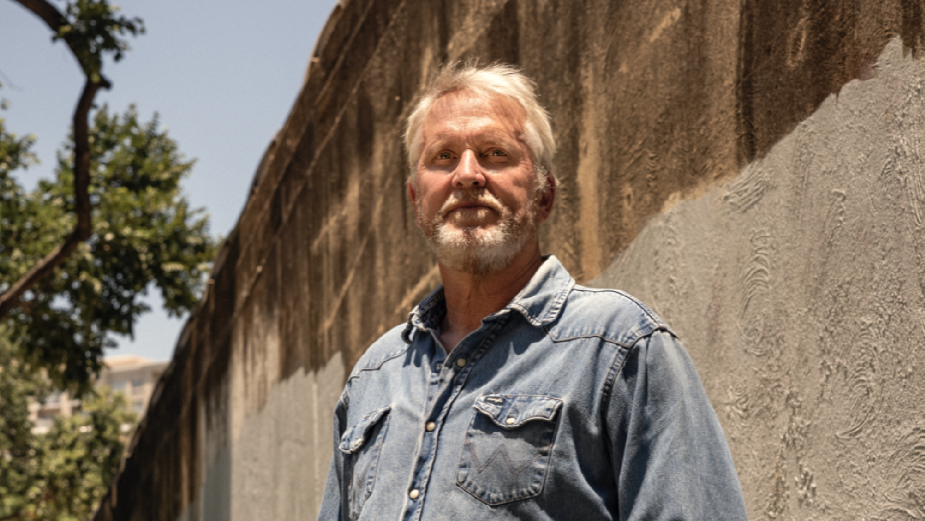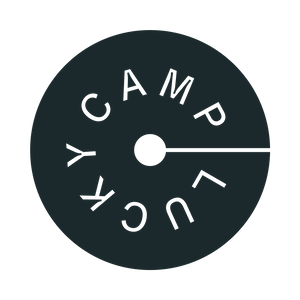
The Directors: Jeff Bednarz

At an early age Jeff Bednarz knew he wanted to be a storyteller and through directing he found his voice. An accomplished dialogue director, working with real people, his ability to communicate and genuinely connect with people has been a driving force in his success. Known for beautiful film, Jeff ‘s work for The Salvation Army integrated campaign features moving stories about humanity and help, and was featured in Communication Arts magazine. Jeff turned his attention to football in small town America in the compelling short documentary “6” which premiered at the SXSW Film Festival. Bednarz captured the spirit and inspirational portraits of the people of Pin Point, Georgia in his award-winning film “Take Me To The Water,” earning Best Documentary at the 2012 Charleston International Film Festival.
Name: Jeff Bednarz
Location: Dallas
Repped by/in: Camp Lucky
LBB> What elements of a script sets one apart from the other and what sort of scripts get you excited to shoot?
Jeff> There are two levels to the project - the story and the concept. It’s all about having a great concept in order to tell that interesting story. Even with docu-style projects, the design and approach comes from an understanding of the kind of narrative you want to express. It can come from a beautifully written script or an original idea that can lead to finding the individual stories that express the concept... for me, it’s often about the human element, and the honour of being invited into a person’s world.
LBB> How do you approach creating a treatment for a spot?
Jeff> A treatment is of critical importance for so many reasons, and I personally love the process because it sparks ideas, as a guide for how I want to approach a project and as an opportunity to welcome feedback that can be instrumental in making a better finished product.
LBB> If the script is for a brand that you're not familiar with/ don’t have a big affinity with or a market you're new to, how important is it for you to do research and understand that strategic and contextual side of the ad? If it’s important to you, how do you do it?
Jeff> It’s vitally important. Who are they? What is the product? Why is the product produced? What is the history of the brand? These are the reasons why we are here, and you need to know these things before you dig into the story you are trying to tell. Admittedly, I do enjoy business but even if you aren’t keenly interested in strategy, it’s important to have done one’s research out of respect for the brand and company commissioning the work, the agency and brand partners, and subjects of the story you will tell.
LBB> For you, what is an important working relationship for a director to have with another person in making an ad? And why?
Jeff> There are many levels and people involved in creating a single project, so it is very difficult to identify a single person. For me, it is surrounding myself with people who are like-minded in their commitment to the process. I can’t put more weight on the producer, the editor, or the power of music. It’s the foundation for every project - if it all isn’t there, you can feel a weak link. I’m really lucky to have such an amazing team and long term relationships. When we go on set, the show goes on and nothing else matters.
LBB> What type of work are you most passionate about - is there a particular genre or subject matter or style you are most drawn to?
Jeff> I really love when you can show how special people are, especially those who have dedicated their lives to very specific things. Human beings are incredible for often overlooked ways - there’s everyday wonder in humanity. People have opened their doors, hearts, and lives to me, which is the blessing of my career. It’s all about the study of the dignity of the human being. Are we compassionate enough to work with each other and figure this marble out? There’s beauty in it all.
LBB> What’s the craziest situation you’ve come across in the course of a production?
Jeff> I have travelled the world, sometimes to places that were confronting difficult or dangerous situations like Haiti after the earthquake. You have to be aware of your surroundings and often take a beat before you step in. I have had many wild experiences, many good and some super unexpected. One that stands out is being in Chad, in Africa, and one of the project’s subjects wanted to show me his home village. The roads were a little crazy and we ended up getting separated from the rest of the crew on the drive - which, as it turns out, meant going to Benin! My cell phone didn’t work, and I was in a new country, and admittedly did not know what would happen next. But the minute I stepped out of the car I was surrounded by people who were eager to welcome us, and all worry melted away. I can’t say the same for the crew who lost us, but we all eventually met up and it was incredible to experience a sense of pride of place.
LBB> How do you strike the balance between being open/collaborative with the agency and brand client while also protecting the idea?
Jeff> You have to protect the idea for the integrity of the project, but not at the expense of relationships. That generally comes down to open communication which starts, as mentioned earlier, in the development of a treatment. Some of the people who come out of the shoot have been working on this project for a long time - months, years - so it is important to respect what happened before I came into the picture. You have to keep an eye out for something special, even while you have a plan of action. If you are open minded and have a great blueprint, you can pull a great deal of breadth from the footage - which is helpful when considering all of the places that content lives now.
LBB> What are your thoughts on opening up the production world to a more diverse pool of talent? Are you open to mentoring and apprenticeships on set?
Jeff> I have always been very open to it and think it is important to welcome voices from all backgrounds for an enriched experience. We need to be aware of steps to create an industry that reflects the full expression of the population in this country. There are many ways to accomplish this, and mentoring is one. There are many excellent organizations and initiatives that can be a resource and pipeline to opportunity. At Camp Lucky we are big fans and supporters of E4 Youth.
LBB> How do you feel the pandemic is going to influence the way you work into the longer term? Have you picked up new habits that you feel will stick around for a long time?
Jeff> It’s been fascinating learning how to make quality content in these times.
I think we know that we can get a lot done from home or with hybrid working situations, which has been a gift of time and is likely to be a permanent part of the landscape. Casting virtually is also here to stay. It allows us to cast a wider net which is very cool. Additionally, we don’t have to travel everyone to location which is efficient, a potential money saver, and good for the environment. Especially when doing docu-work and real people, a small group is often better anyway in terms of getting natural performances or authentic moments.
LBB> Your work is now presented in so many different formats - to what extent do you keep each in mind while you're working (and, equally, to what degree is it possible to do so)?
Jeff> We are being asked to do more for less, but every element needs to be produced with cinematic quality and with format in mind. We could go into a black hole about changing and evolving creative landscapes but there are great opportunities and material can shine in various places. Understanding how best to produce campaigns to keep quality intact is the name of the game. It’s a wonderful challenge.
LBB> What’s your relationship with new technology and, if at all, how do you incorporate future-facing tech into your work (e.g. virtual production, interactive storytelling, AI/data-driven visuals etc)?
Jeff> Early in my career I spoke at East Texas State and said, “before I’m done, I’ll be directing holograms.” That’s what is so much fun about what we do. It always evolves. Filmmaking fundamentals are the same, so really it’s like giving the painter more paint. There are many things I have imagined and didn’t know how to do, but then an innovation makes it possible. It’s a movable feast.













